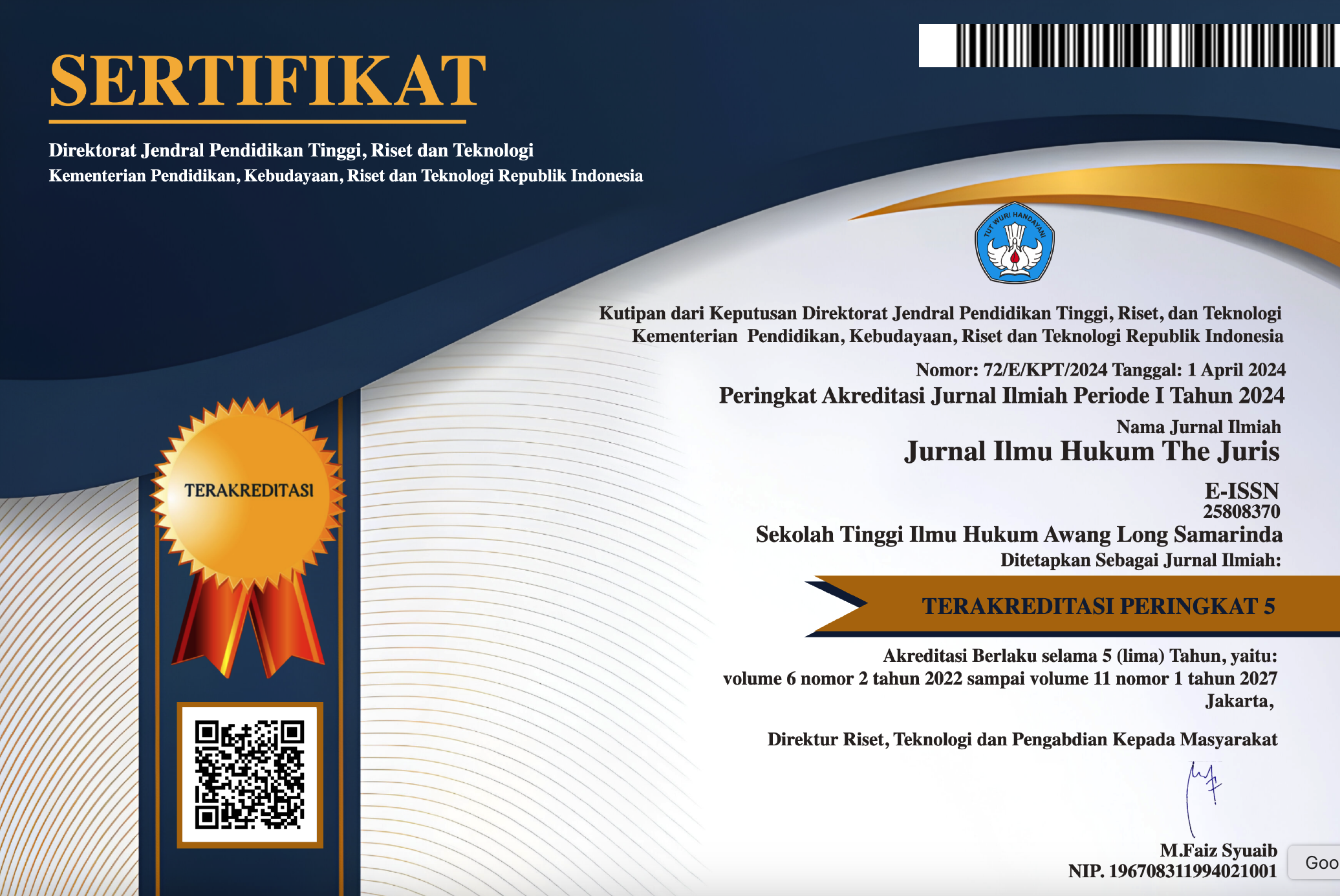POLA PENYELESAIAN PERSELISIHAN HUBUNGAN INDUSTRIAL SECARA WAJIB SEBAGAI PILIHAN PARA PIHAK DALAM MENYELESAIKAN PERSELISIHANNYA
Abstract
Efforts to provide legal protection for workers/labourers in an employment relationship are a follow-up to the enforcement of human rights. The acknowledgment of equality before the law between employers and workers/labourers is a juridical consequence of the meaning contained in Article 27 of the 1945 Constitution, so Iman Soepomo (1985: 7) wrote, "that juridically the relationship between workers and employers in carrying out work relations have the same position, in the sense that they can exercise freely. This unequal position between workers/ laborers and employers often creates conflicts, employers provide/issue policies or regulations which according to their considerations are good and accepted by workers/laborers. However, sometimes workers/laborers have different views from employers, so the result is predictable, it will lead to conflicts or disputes; which is in the Act. No. 13 of 2003 concerning Manpower is called the Industrial Relations Dispute. With this, research will be conducted on what are the factors that underlie the disputing parties in choosing the pattern of compulsory dispute resolution as an option in resolving industrial relations disputes. So to find out the factors that underlie the disputing parties in determining the pattern or method of compulsory settlement as a way of resolving their industrial relations disputes.
Downloads
Copyright (c) 2021 STIH Awang Long

This work is licensed under a Creative Commons Attribution-ShareAlike 4.0 International License.







